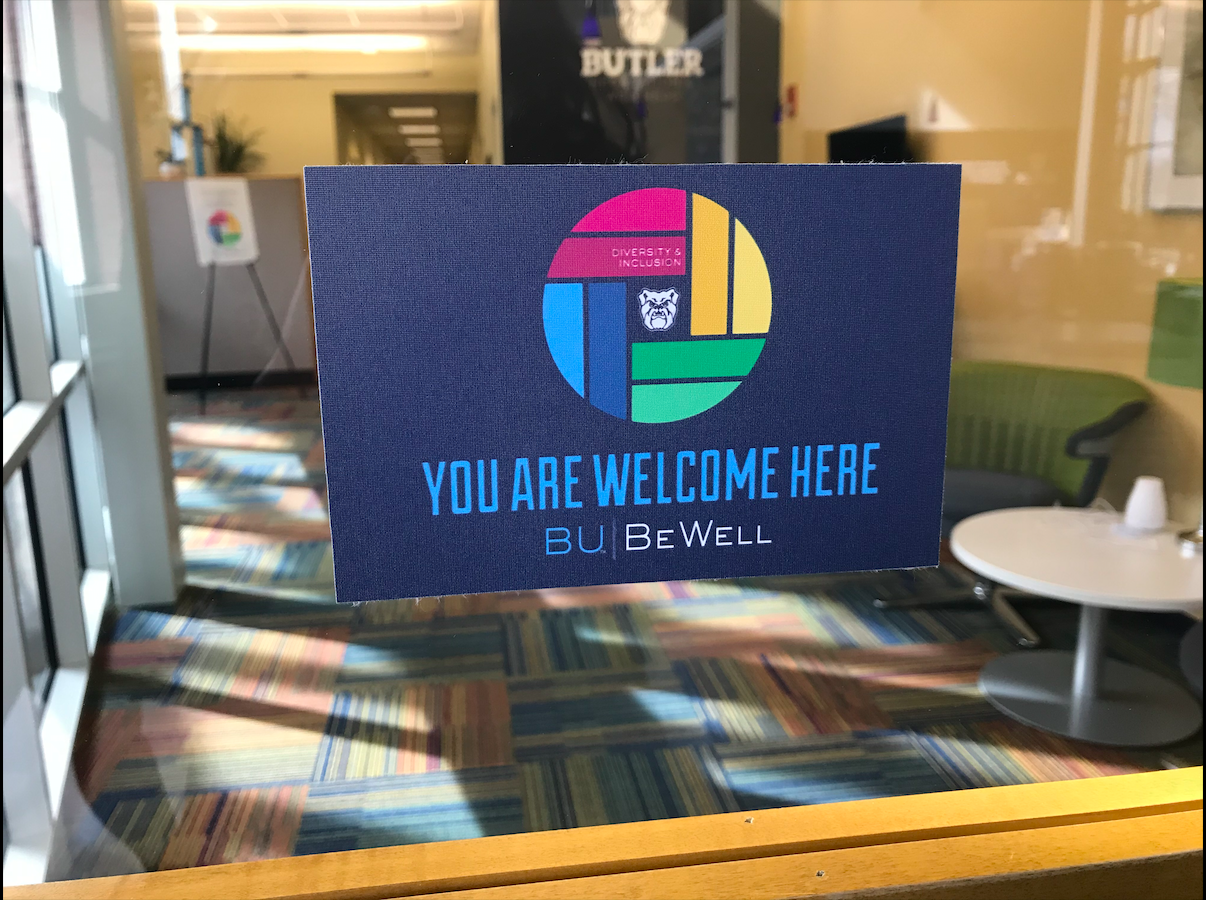Butler’s BU Be Well health and wellness program is partnering with MindWise. Photo by Lily Wood.
OLIVIA KLAFTA | STAFF REPORTER | oklafta@butler.edu
BU Be Well, Butler University’s health and wellness program, has begun to promote their partnership with MindWise, a free and anonymous online screening tool for mental health and substance abuse issues.
Butler’s contract with MindWise began in August. BU Be Well used the first semester of their partnership to monitor the data and is now beginning to actively promote the site. This college online screening package costs $900 for a university population between 2,000 to 15,000 students.
The contract allows BU Be Well to customize the website’s interface to make it Butler-specific. The results share local resources, such as the HRC Counseling and Consultation Services, and St. Vincent Stress Center. BU Be Well and CCS can view the user’s age, gender identity and racial identity. They can also see what type of screening is being taken and the results of the screening. Other than that, the user’s identity is kept anonymous.
Katie Wood, assistant director for health promotion and wellness, said BU Be Well first looked at MindWise because it is easily accessible, anonymous and covers a wide range of topics.
According to the Butler MindWise website, MindWise uses a survey, which they call a screening, to “determine if your recent thoughts or behaviors may be associated with a common, treatable mental health issue.”
“Realizing that mental health is just as important — if not more important — than physical health, and we want to make sure that students have options to check in with themselves,” Wood said. “It’s a screening tool, it’s not a diagnostic thing, it’s not a replacement for care or seeing a healthcare professional.”
Users can select any of 12 surveys, all of which are phrased as statements explaining how a student may be feeling, such as “worried about my drinking habits” for the alcohol use screen, or “feeling sad, down, or empty” for the depression screen. MindWise also offers a wide-range screen if the user is not sure what they’re feeling. The user will then answer a short set of questions about their demographics and how they’re feeling. After answering these questions, MindWise will provide comprehensive explanations and connect the user with the resources needed to get help if they choose to.
Wood said BU Be Well recognizes that students may not want to go to CCS as a first step option.
Sarah Vitelli, a senior psychology major, acts as a BU Be Well peer education liaison. She advocates for BU Be Well’s wellness initiatives, which now includes MindWise.
Vitelli said one of MindWise’s advantages is its ability to function as a personal and private “first step” in creating a baseline assessment.
“Maybe they [the user] feel like, ‘Okay, this is something I’ve noticed within me,’ whether that be for substance abuse, eating disorders or depression and anxiety,” Vitelli said. “So being able to use this tool to establish a baseline like, ‘I’m concerned about this, I see this in myself.’”
Hailey Hammons, a senior organizational communication major, said she believes MindWise will be beneficial to students that may be struggling.
“I think this will be very good for students, because it’s sometimes hard to admit problems that they have,” Hammons said. “Being able to go and choose from all the different options on the website may be easier for them to accept the problem or come to terms with what they think they need help with.”
Butler’s version of the MindWise website can be accessed on the HRC’s self-assessment page.



